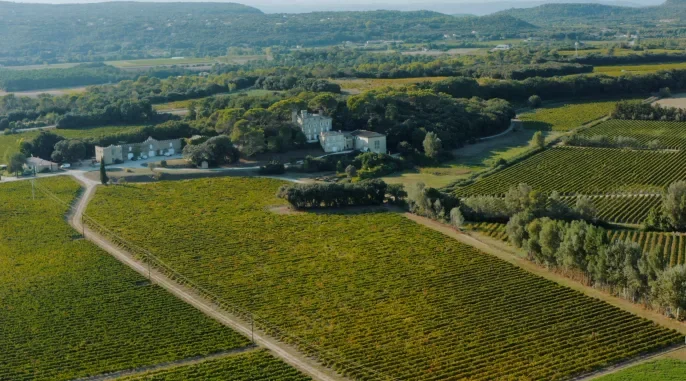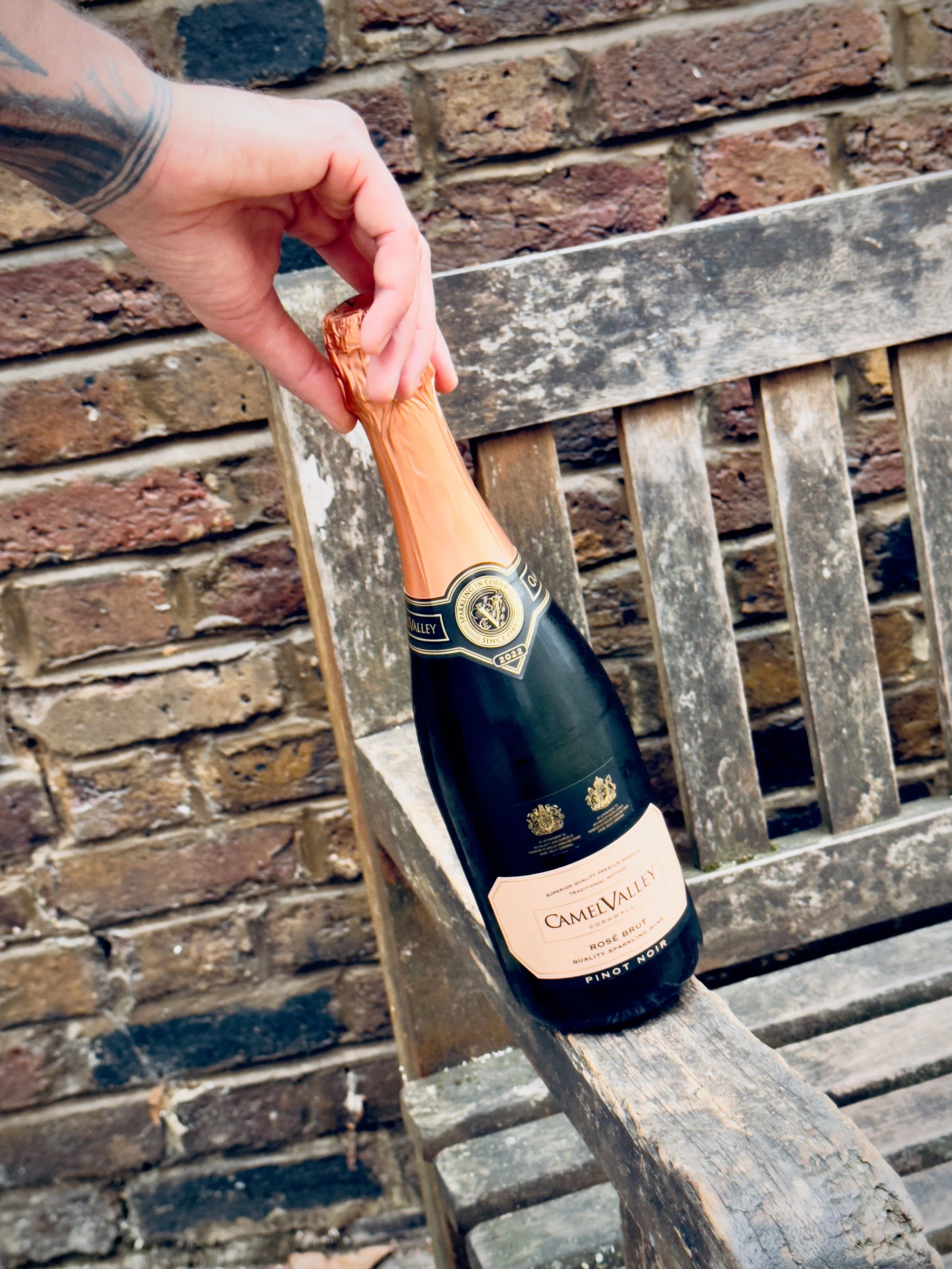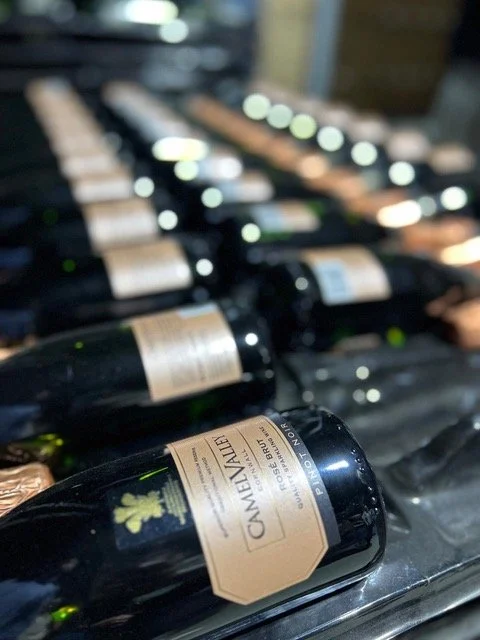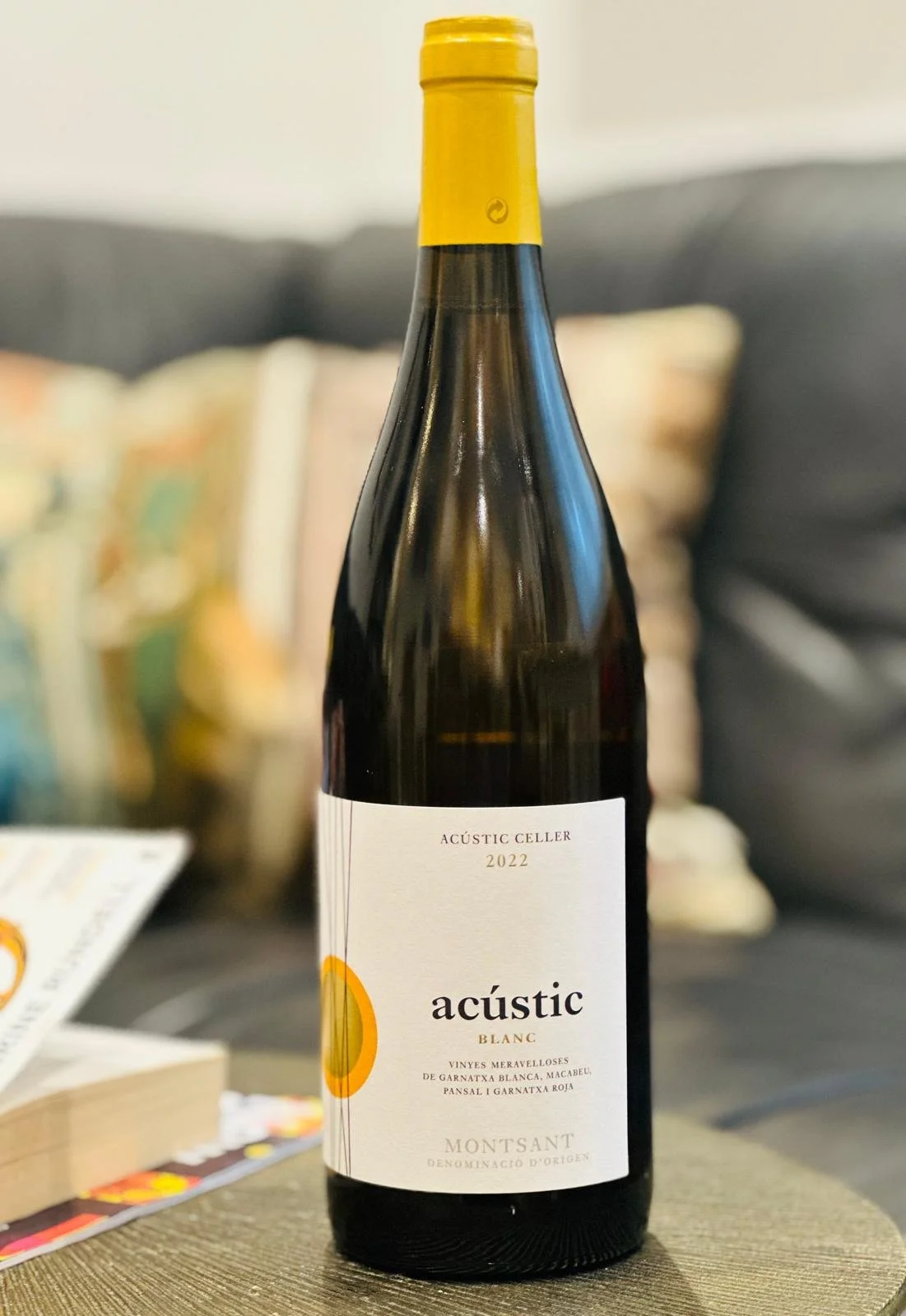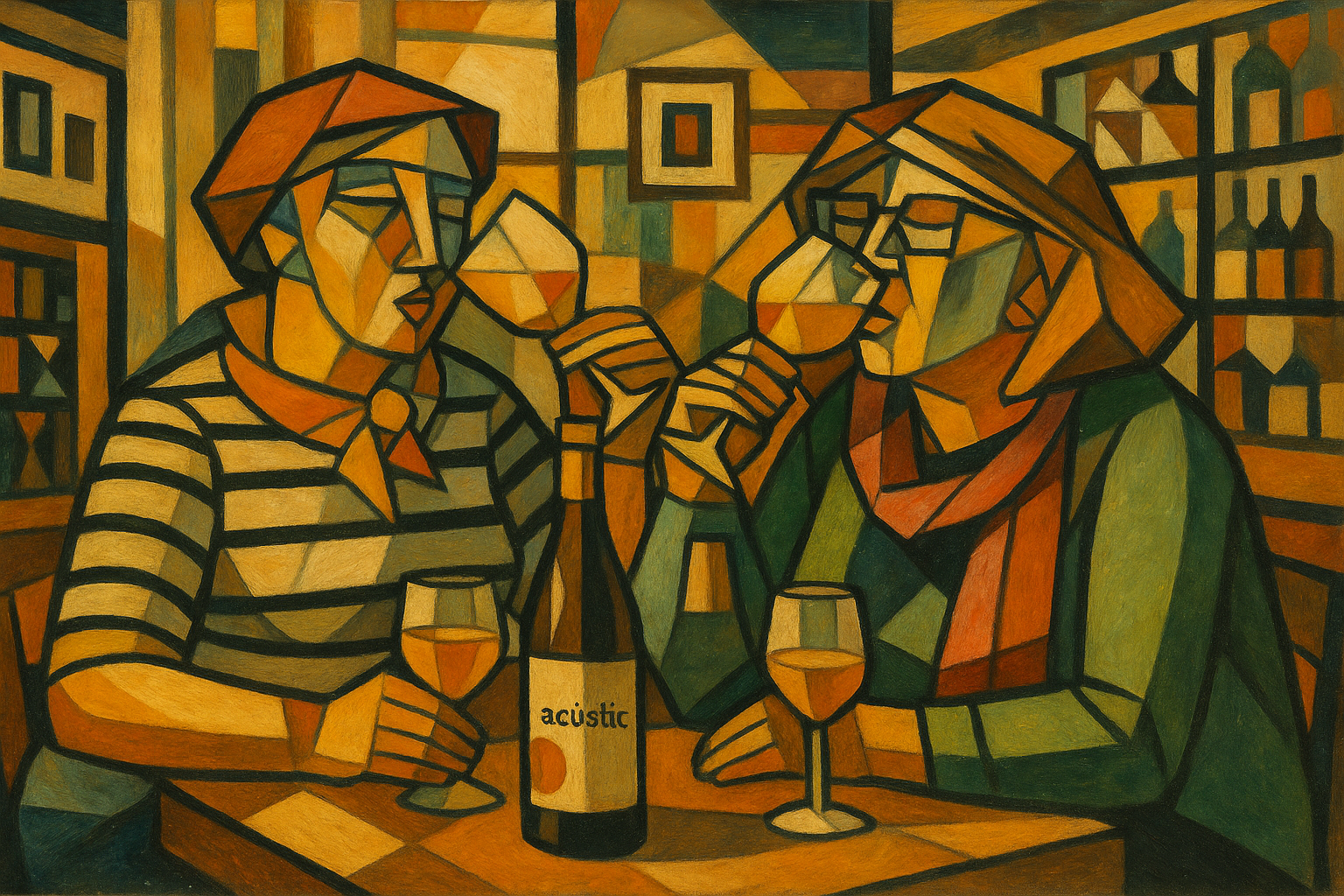Clark Foyster’s tasting for Greenberry - June 2025
What Morfudd’s Drinking
November 2025
2019 Château La Borie Côtes du Rhône Villages, Rhône France
I’m very happy to see the return of wines from the lovely old Château La Borie estate near Suze-la-Rousse, in the northern corner of the Southern Rhône, where I once spent a glorious summer holiday. The vineyards sit on old limestone and clay soils surrounded by wild herbs, olive trees and garrigue scrub — classic Rhône country. The estate began converting to organic farming in 2019, and there’s a lovely sense of care and calm in the wines that follow. Previously we listed the generic Côtes du Rhone from La Borie; the Villages wine is a step up in terms of complexity and deliciousness.
The vines benefit from southern-facing slopes, warm sunshine and the cooling influence of altitude in the Suze-la-Rousse zone, which helps preserve freshness and aromatic complexity even in a warmer vintage. This is a blend of mostly Syrah and Grenache with a little Mourvèdre for depth. The grapes are hand-picked and gently fermented in concrete rather than oak, so what you taste is all pure fruit and terroir. The wine then rests in large old vats to soften the edges without picking up heavy wood flavours — giving it that polished, seamless texture that Rhône lovers adore.
The 2019 vintage was a beauty — warm days, cool nights and wonderfully silky tannins.
In the glass, it’s a deep ruby red with generous aromas of black cherry, violets and a hint of cracked pepper. The palate is creamy and smooth and full of juicy dark-berry fruit with a savoury, herby edge so reminiscent of southern Rhône country.
It’s generous and full of character but never heavy — the kind of Rhône red that just slips down and works with almost anything, but its really a heavenly match with our Confit duck shepherds pie and Roast chicken breast with girolles and mash. It’s so juicy, it can also be enjoyed on its own!
Chateau La Borie is available by the glass, carafe and bottle.
What Morfudd’s Drinking
October 2025
2022 Camel Valley Pinot Noir Rosé Brut – Cornwall
Camel Valley is one of those wonderful British success stories: Bob and Annie Lindo planted vines on the sunny slopes above the River Camel back in 1989, not entirely sure what might happen, and now the estate is one of the most celebrated sparkling-wine producers in the country. Their son Sam is now in charge of the winemaking, and the style has only grown finer, more precise, and more self-assured over time.
This rosé is made entirely from Pinot Noir and produced in the traditional Champagne method, but it has its own personality — joyful, bright, and distinctly coastal. On the nose, you get wild strawberries, fresh raspberry and redcurrant, with a little rose petal perfume and a hint of warm brioche from time on the lees. On the palate, it’s beautifully poised: crisp and lively, with a refined mousse and a gentle creaminess that rounds everything out. The fruit is pure and clean, the acidity is refreshing rather than sharp, and the finish is long, elegant, and moreish.
There’s something particularly English about it — breezy, graceful, quietly confident.
And the quality speaks for itself: the 2022 picked up a Gold Medal at the International Wine Challenge — always a serious marker of style and precision.
Perfect for celebrations, Brunch with friends, romantic Autumn evenings or the simple pleasure of a chilled glass at the bar. Just a delight!
What Morfudd’s Drinking
September 2025
I was delighted to find this fantastic Catalan white at a recent Lea and Sandeman tasting - 2022 Acústic Blanc from Acústic Celler in Montsant appellation of Catalonia.
Founded in 2003 by winemaker Albert Jané, Acústic Celler takes its name and inspiration from the idea of being “acoustic” — creating wines in their purest, most natural form, without unnecessary amplification or manipulation. From old, dry-farmed vines in the DO Montsant region of southern Catalonia, the estate cultivates native varieties — Garnatxa Negra, Carinyena, Garnatxa Blanca, Macabeu, and Pansal — across diverse soils of clay, sand, and stone at altitudes between 300 and 700 metres. Today, the estate manages over 50 hectares, farmed organically, with a deep respect for biodiversity and the rhythms of nature.
Acústic Blanc is aged for seven months on its lees in a mix of oak, stainless steel, amphora and concrete egg; on the nose it is intense, complex and fresh leading to rich flavours of ripe pear, quince and citrus lifted by floral notes and a touch of honeyed minerality. All well and good, but what struck me on tasting the Acústic blanc for the first time was its layered, textural character, its wonderful velvety, luxurious mouthfeel balanced by ripe acidity and length. The fruit profile is structured and rich, but I think it’s the combination of lees ageing together with some ageing in new oak barrels that gives the wine these complex textural characteristics. It’s such a great example of thoughtful winemaking by Albert Jané, who grows local varietals and has a deep respect for terroir, and it's a brilliant addition to our list!
It’s available by the glass, carafe or bottle - try with our starter dish of wild mushrooms with Parmesan polenta or with Jerusalem artichoke risotto or Sutton Hoo chicken breast with girolles. Salut!



